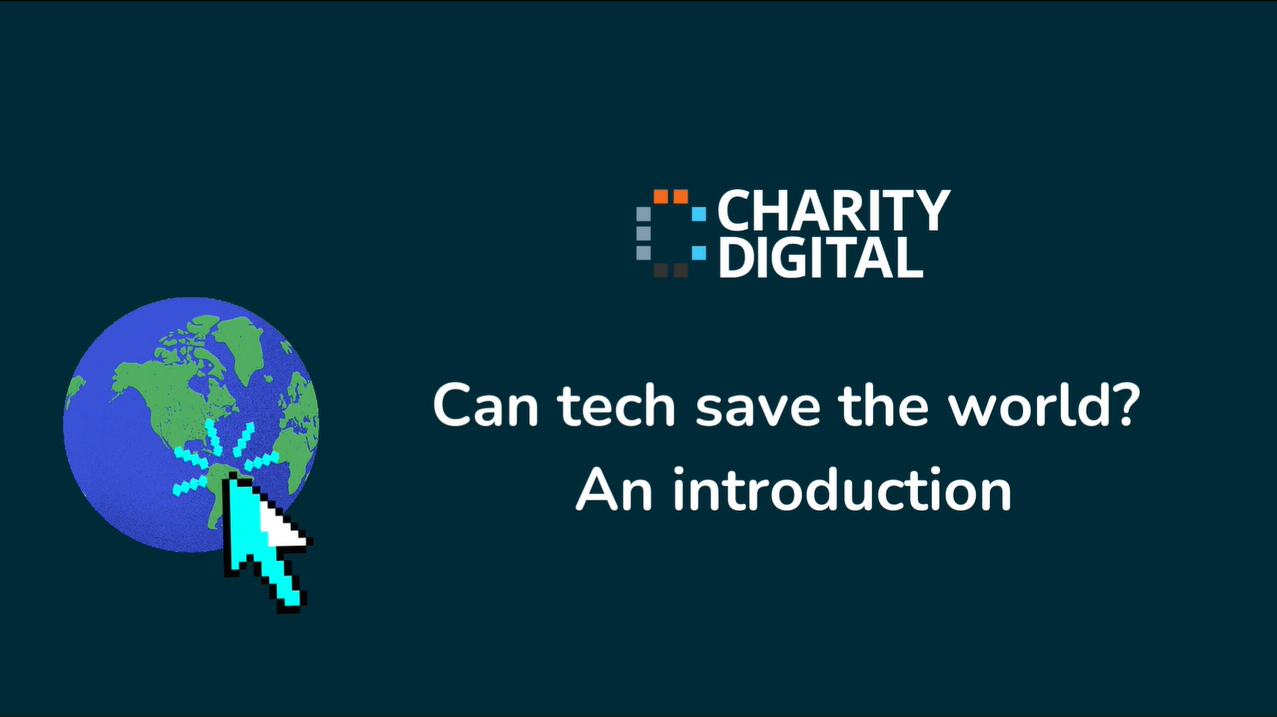Insights
INSIGHTS
All Topics
Three reasons why Charity Digital is taking climate action
04 May 2023by Laura Stanley
We outline our motivations in taking action on climate change and why we’re talking to the charity sector about the environment
CHECK OUT THE ’CLIMATE ACTION’ HUB!
Climate change is one of the most pressing issues we are facing today. Research has shown that global heating will impact our food supply, our weather, our ecosystems, and much, much more. If the Earth continues to heat at the same rate as it does now, life as we know it will be at risk.
But there is still hope. Scientists have suggested that the worst impacts of climate change can be prevented if we manage to keep global heating below 1.5 degrees Celsius. Collective action is needed from individuals, governments, and corporations across the world in order to change our behaviours and redesign our current systems to reduce our carbon footprint.
We believe that charities have a voice in this fight. In January 2023, we launched the Charity Digital Climate Action campaign to raise awareness about climate change in the charity sector, show charities how digital and technology can help us minimise our carbon footprint, and empower them to take meaningful action to protect our planet.
Our Climate Action Hub is now home to a wealth of resources, from a handy climate change glossary to help charities understand more around the language of climate change to an in-depth explanation of the science behind it. We have also compiled a list of resources from other charities and organisations which can help the sector take steps to address environmental sustainability within their own operations and talk about it with their audiences.
We understand that talking about climate change can seem a bit abstract given the pressures on charities, particularly as demand for services rise and the cost-of-living crisis continues. But we wanted to explain more about our reasoning and demonstrate that the time for addressing climate action in the charity sector is now.
Three reasons behind our Climate Action campaign
1. The charity sector exists for the benefit of the public and the communities we serve
Climate change will likely affect the communities that charities serve disproportionately. As the Framing Climate Justice project points out, “One of the most important tenets of climate justice is that those who contribute the least to the climate crisis suffer the brunt of it”.
The consequences of climate change, from food scarcity to natural disasters, will have an impact on the work that charities do and the work they are able to do in the future. Addressing climate change should be seen as necessary futureproofing, not an afterthought.
Similarly, it is important to note that research from Climate Outreach tells us that the vast majority of people in Britain, across a variety of demographics, understand that climate change is real and all segments agree that we’re already feeling the effects. In that vein, charities also have a responsibility to act – for their beneficiaries, donors, supporters, and employees.
2. Digital is both the problem and the solution to climate change
As a charity that exists to help other charities achieve their mission with digital, we want to acknowledge that digital technology comes with its own carbon footprint and encourage the sector to think about the sustainability of the tech they use. The carbon footprint of digital technology is often underestimated, but it is, in fact, comparable to that of the aviation industry.
This does not mean that charities should avoid using digital technology. There are complex conversations organisations need to have – Zoom calls might save carbon emissions involved in travelling to in-person meetings, for example, but that is not to say they don’t have an environmental footprint of their own.
We must think about our carbon emissions objectively and make strategic decisions in order to reduce them. We want to encourage charities to include digital in their sustainability strategies, in their environmental policies, and in their energy-saving actions. By thinking about digital in this way, we can be more efficient with how we use it.
3. The charity sector has a voice to lead on ethical issues
Charities are used to getting people to care about our causes and climate change is a cause that affects all of us. Climate Outreach’s research into the attitudes of the public towards climate change found that it is seen as a concern for everybody across the political spectrum, across all sections of society. Simply put, it should not be a partisan issue.
In the past, charities have been able to mobilise on a variety of different fronts, condemning racism to support the Black Lives Matter protests in 2020, uniting against rising levels of poverty in 2017, and most recently, calling on the UK Government to act in the wake of the cost-of-living crisis. Charities are uniquely placed to be able to mobilise action and change the conversation around important matters, including climate change.
It is worth noting that there are legal guidelines for charities engaging in political campaigns and discourse – they are permitted to do so as long as it furthers their charitable objects, is not the sole object of the organisation, and is not party political. Having a voice on climate change does not require charities to contravene that legislation – it is a matter of carving out impact where we can and leading by example.
Leading by example may even be work that charities are already doing internally – adopting environmental policies, conducting environmental audits, hiring sustainability managers, for example – that tallies with the increased awareness of and pressure for organisations across all sectors to tackle climate change.
Our point remains: charities have a trusted voice in the UK and an opportunity to support their communities through upcoming challenges while becoming leaders in climate action themselves.
Sign up for our newsletter
Click above to receive the latest sustainability content straight to your inbox
Laura Stanley
More on this topic
Recommended Products
Related Videos
Our Events
Charity Digital Academy
Our courses aim, in just three hours, to enhance soft skills and hard skills, boost your knowledge of finance and artificial intelligence, and supercharge your digital capabilities. Check out some of the incredible options by clicking here.


















